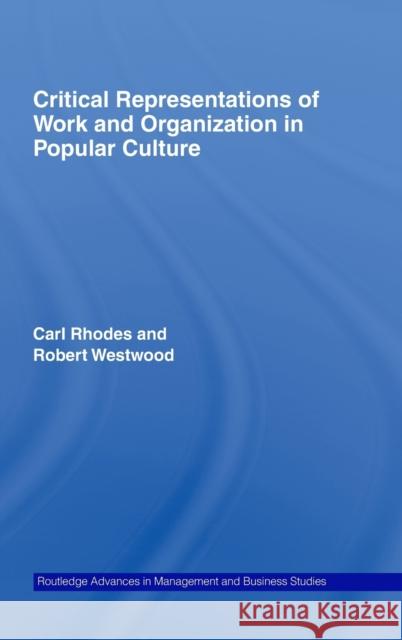Critical Representations of Work and Organization in Popular Culture » książka
Critical Representations of Work and Organization in Popular Culture
ISBN-13: 9780415359894 / Angielski / Twarda / 2008 / 256 str.
Critical Representations of Work and Organization in Popular Culture
ISBN-13: 9780415359894 / Angielski / Twarda / 2008 / 256 str.
(netto: 699,68 VAT: 5%)
Najniższa cena z 30 dni: 705,23
ok. 22 dni roboczych.
Darmowa dostawa!
This book challenges traditional organizational theory, looking to representations of work and organizations within popular culture and the ways in which these institutions have also been conceptualized and critiqued there. Through a series of essays, Rhodes and Westwood examine popular culture as a compelling and critical arena in which the complex and contradictory relations that people have with the organizations in which they work are played out. By articulating the knowledge in popular culture with that in theory, they provide new avenues for understanding work organizations as the dominant institutions in contemporary society. Rhodes and Westwood provide a critical review of how organizations are represented in various examples of contemporary popular culture. The book demonstrates how popular culture can be read as an embodiment of knowledge about organizations - often more compelling than those common to theory - and explores the critical potential of such knowledge and the way in which popular culture can reflect on the spirit of resistance, carnivalisation and rebellion.
This book challenges traditional organizational theory, looking to representations of work and organizations within popular culture and the ways in which these institutions have also been conceptualized and critiqued there. Through a series of essays, Rhodes and Westwood examine popular culture as a compelling and critical arena in which the complex and contradictory relations that people have with the organizations in which they work are played out. By articulating the knowledge in popular culture with that in theory, they provide new avenues for understanding work organizations as the dominant institutions in contemporary society.
Rhodes and Westwood provide a critical review of how organizations are represented in various examples of contemporary popular culture. The book demonstrates how popular culture can be read as an embodiment of knowledge about organizations – often more compelling than those common to theory – and explores the critical potential of such knowledge and the way in which popular culture can reflect on the spirit of resistance, carnivalisation and rebellion.











